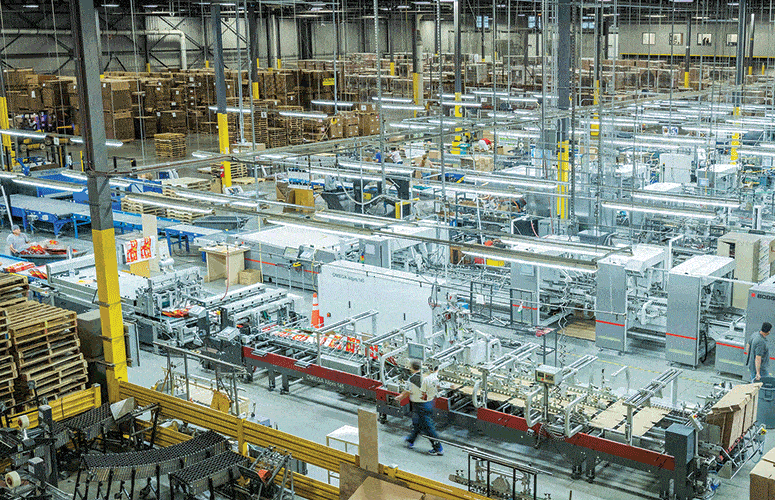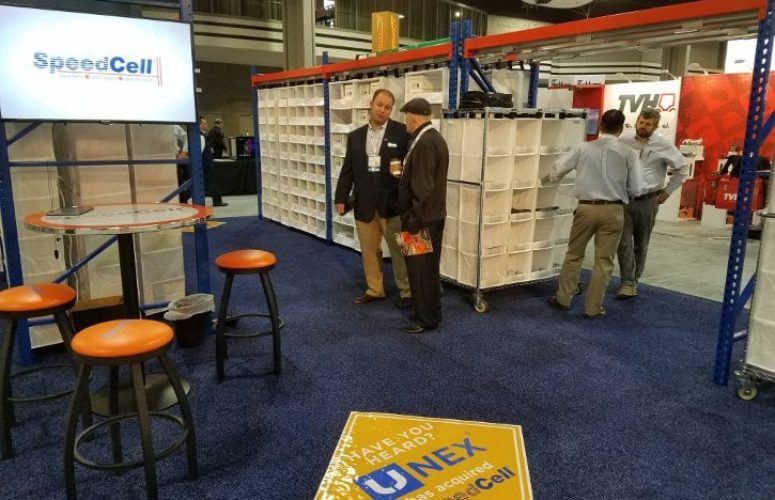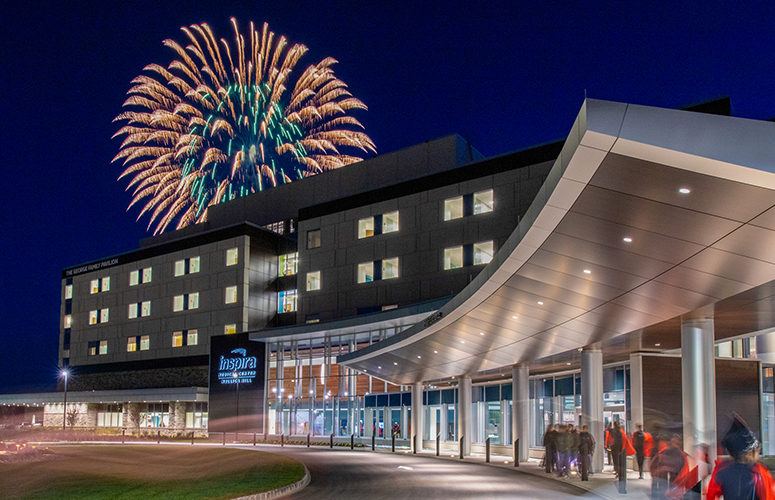
Manufacturers Thrive Through Adverse Times
With innovations in equipment shaking up the market, prolonged effects of the pandemic, and a desire for policy relief, New Jersey manufacturers find ways to persevere.
By João-Pierre S. Ruth, Contributing Writer On Oct 8, 2021Local manufacturers continue to defy challenges that can make it difficult to operate in New Jersey, though they share a desire for a bit of empathy to support their industry in the state. Products from companies such as Inteplast Group and Accurate Box can turn up across New Jersey and beyond, sometimes without the general populace realizing it. These companies vary in size and focus, but each of their histories extends back multiple decades.
Inteplast Group, a maker of plastic films and injection molded materials, is headquartered in Livingston and has its flagship plant in Lolita, Texas. “We always had a presence in New Jersey,” says John Young, president of Inteplast. The company was founded in 1991 and Young, who was a physician and professor prior to Inteplast, says the presence in Texas and New Jersey has helped reach customers.
In addition to the Lolita complex, which includes eight separate plants with more than 2,100 employees on site, the company operates 54 manufacturing facilities, 12 warehouses, and has more than 7,400 employees in some 21 states and seven provinces in Canada, along with a presence in Asia.
Young says Inteplast’s products, which include private label services, can be found in supermarkets; from bags that carry groceries and produce, to labels and packaging on products such as milk or snack chips. The company also produces end products such as sandwich bags and trash bags. Many swimming pool panels were injection molded by Inteplast. Hospitals and clinics also use Inteplast plastics, such as gloves and other items.
“We wanted to make substrates that people use on a daily basis, whether these are films they use to wrap sandwiches or substrates used for homes, such as decking trim board,” Young says.
Running the company through challenging periods such as prior recessions and the COVID-19 pandemic tested Inteplast’s resolve, Young explains. It also represents the potential to continue manufacturing in America. Modernizing technology has been essential to that end, to keep the company competitive in the current economic climate.
Getting Inteplast started did require a bit of heavy lifting. “We had to create the market for our products,” Young says. “It’s not like suddenly generating electricity; there’s a market presence for that. You just have to be a producer.”
Inteplast’s journey to build up its niche was tough, despite its early capacity to do more work. “The market was aligned already with existing suppliers and existing customers,” Young says. There seemed to be little room for Inteplast at that time. Worry about his staff and the future left Young with many sleepless nights, he says.
Learning to be frugal through those times would payoff later. “When a recession comes, you have to be tight; you have to run the boat lean,” Young comments. “Over the years, we’ve learned to run the company like there’s a recession. It’s sharpened our resolve to succeed.”
Dealing with the pandemic has brought new challenges with extended ripples that reach Inteplast.
“Containers coming from Asia or anywhere, they cost four to seven times more than pre-pandemic times,” Young says. Companies that Inteplast works with started their Christmas season buying as early as June, he says, because of the logistics nightmare. “There’s a shortage of labor, a shortage of truck drivers,” he says. There can be lines of ships waiting to unload at seaports because of this. “That brings inefficiency to the system and you see a huge hike in shipping and raw material prices,” Young explains.
Chances are the boxes from Accurate Box have been seen or purchased by many consumers in the state and beyond. The fourth-generation, family-owned company in Paterson got its start in 1944, says CEO Lisa Hirsh. Her grandfather, Henry Hirsh, founded the company as a small folding carton manufacturer. When Henry Hirsh passed away, his son Charles Hirsh took over and developed the business further and, in 1983, bought the company’s current Paterson location.
Accurate Box evolved in the late 1970s, taking on litho-laminated corrugated boxes, a specialty part of the market. “That was about the time some of the club store businesses were starting to develop. Costco, BJ’s, Sam’s Club developed and started to grow,” Hirsh says. Their growth led to a need for a high-graphic, corrugated boxes that also look like regular folding cartons. “That’s the part of our business that really started to take off, so we started to focus on that,” she says. “Now that’s 100% of what we do.”
About 80% of the boxes made by Accurate Box go into the club store market, with the remaining 20% going to e-commerce retail and packaging for quick-serve restaurants. Reinvesting in the business has been essential to remaining competitive, which included a major renovation of the company’s facility in Paterson. In addition to its manufacturing facility, Accurate Box uses warehouses across the country for just-in-time inventory. Hirsh says the company qualified for tax credits through the Grow New Jersey Assistance Program from the state’s Economic Development Authority, which led to a five-year project relocating half of Accurate Box’s operation to another building while renovations were underway.
Accurate Box has also reinvested in equipment, including robots, to keep its edge. “We’re a very efficient plant and we run very highspeed equipment,” Hirsh says. “When you buy a printing press that runs at 16,000 sheets an hour and it replaces a press that was 15 years old and ran at 6,000 sheets an hour, that makes a difference to the throughput.”
Accurate Box has about 320 employees, a number that doubled from the start of being accepted into the Grow New Jersey program. Hirsh says Accurate Box has positions that remain open even with increased wages, hiring bonuses, and referral bonuses.“Right now, is the worst I’ve ever seen,” Hirsh says. “I’ve never seen anything like what we’re experiencing today with the supply chain being so broken. We can’t find people to hire. We can’t get raw materials. We can’t get things off of ships. There’s a shortage of everything.”
To access more business news, visit NJB News Now.






